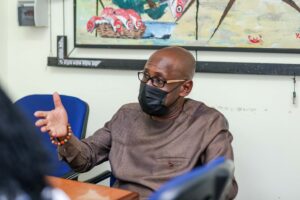Sexual misconduct in Africa and Europe
Sex for grades and related sexual misconduct have become a global threat appropriate workplace behaviour in several Universities in and outside of Africa.
The Star News Outlet in Kenya for example, in an article titled “Sex for grades rife in Kenyan universities – Action Aid study” reported in a study that covered 1,015 students from universities such as the University of Nairobi, Kenyatta, Pioneer, Multimedia, Zetech and Daystar, that one in two female students in institutions of higher learning is sexually harassed (https://www.the-star.co.ke/news/2019-12-09-sex-for-grades-rife-in-kenyan-universities-says-action-aid-study/undefined).
The same study noted that lecturers are the largest perpetrators at 66 per cent, followed by service staff at 24 per cent, and management at 23 per cent. The study noted finally that sexual harassment includes staff telling sexual or offensive jokes or stories (21 per cent), inappropriate comments from staff about student’s own or someone else’s body (26 per cent), and receiving unwanted sexual and/or offensive content from staff via phone and social media (11 per cent).
In Europe, a 30th April 2021 article carried by the Metro newspaper in the UK reported that a UK university was made to pay a student £5,000 in compensation after a member of staff allegedly offered them ‘higher grades in exchange for sexual activity (https://metro.co.uk/2021/04/30/university-made-to-pay-5000-to-student-offered-higher-grades-for-sex-14495276/) and that this case study was released after nearly 100 British universities were named on a website where students have been anonymously sharing experiences of sexual harassment, abuse and assault.
In the light of the challenges posed by sexual misconduct to universities worldwide and the University of Kigali in particular, a team from the University of Kigali paid a consultative visit to the University of Ghana on Thursday 18th November, 2021 to discuss ways by which the University of Ghana could share best practices with the University of Kigali to root out all inappropriate workplace behavior. The team was led by the Deputy Vice Chancellor-Academic, Professor Robert E. Hinson.
Rooting out Sexual Misconduct
Given the insidious nature of sexual misconduct there have been several proposals for rooting this canker out, and Drs. Emma Chapman, Anna Bull Tiffany Page in proffering solutions for dealing with University sexual misconduct have argued that Universities should (1) break the silence, (2) develop new and relevant codes of sexual misconduct and (3) have solid disciplinary processes (https://1752group.com/solutions-for-sexual-misconduct-in-higher-education/). Other strategies could include the development of appropriate workplace behaviour campaigns and sensitising both students and University staff to their rights and responsibilities in enjoying safe University spaces, devoid of sexual harassment.
University of Kigali partners University of Ghana’s CEGENSA

The University of Kigali recently signed an MOU with the University of Ghana to cooperate in several areas to foster the mutual development of the two Universities. Under the auspices of the MOU, a team from the University of Kigali, led by the Deputy Vice Chancellor-Academic, Professor Robert E. Hinson, visited the Centre for Gender Studies and Advocacy to learn from University of Ghana’s experiences in handling sexual misconduct issues and related gender mainstreaming activities.
The University of Kigali team also included Ms. Gifty Aduamah, the Director of Marketing and Institutional Advancement.
In receiving the University of Kigali team, the Director of University of Ghana’s Centre for Gender Studies and Advocacy (CEGENSA), Dr. Deborah Atobrah welcomed the UoK team and expressed her delight at their visit.

Dr. Deborah Atobrah pledged the support of CEGENSA in assisting the UoK to achieve the following:
- Fine-tuning and outdooring a new sexual harassment policy for the UoK
- Assisting in the development of a Gender Policy for the University of Kigali
- Co-running gender sensitization and appropriate workplace behaviour workshops for University of Kigali staff and students in Kigali
- Assisting in the introduction of gender courses into UoK’s undergraduate curriculum
Upon completion of the new sexual harassment policy, UoK will make the policy binding on all staff and students and review its curriculum to include gender-related subjects such as Introduction to Gender. The policy implementation process will also include in-person as well as virtual mentoring and networking sessions for UoK’s female faculty, staff, and students to streamline gender-based issues such as effective management of pandemics by female academics, different approaches to crisis management among others.
Elated about the partnership and the opportunities it presents to both universities, Dr. Atobrah assured UoK of CEGENSA’s commitment to help with the development and implementation of an effective gender and appropriate workplace policy. The Deputy Vice Chancellor Academic, Professor Robert E. Hinson thanked the CEGENSA Director and reiterated the UoK management team’s commitment to building and maintaining a safe and harassment-free environment for staff and students now and in the long-term.










